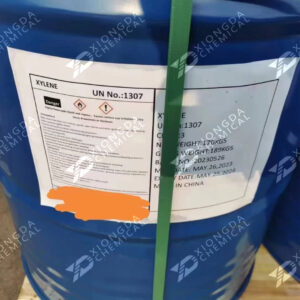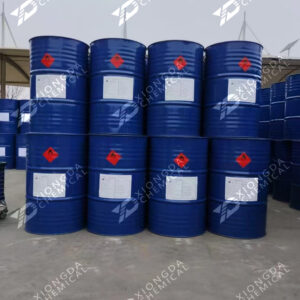- Applications:
- Synthetic Materials: Used in the production of synthetic fibers, plastics, and resins.
- Solvent: Used as a solvent in the chemical and pharmaceutical industries for various applications, including paint and coatings.
- Petrochemical Industry: Benzene is a key raw material in the production of styrene, cumene, cyclohexane, and other chemicals.
- Lubricants: Used in the formulation of lubricants, rubber processing, and other industrial fluids.
- Explosives: Benzene is involved in the production of explosives and other high-energy compounds.
- Hazard Identification:
- Flammability: Highly flammable liquid and vapor. Benzene poses a significant fire hazard.
- Health Hazards: Prolonged exposure to benzene can cause central nervous system depression, dizziness, and headaches. It is a known carcinogen that may cause leukemia and other blood disorders.
- Eye and Skin Irritation: May cause irritation to the eyes and skin. Repeated exposure can lead to dryness and cracking of the skin.
- Inhalation Risks: Inhalation of high concentrations of benzene vapors can lead to dizziness, drowsiness, and loss of coordination. Long-term exposure may cause irreversible health effects.
- Environmental Hazards: Benzene is toxic to aquatic life and may cause long-term damage to aquatic ecosystems if released into the environment.
- Precautionary Statements:
- Fire Prevention: Keep away from heat, sparks, open flames, and other ignition sources. Use explosion-proof electrical equipment and ensure proper ventilation when handling benzene.
- Personal Protection: Wear protective gloves, eye protection, and face protection when handling benzene. Ensure adequate ventilation in work areas to avoid inhalation of vapors.
- In Case of Eye Contact: Rinse cautiously with water for several minutes. Remove contact lenses if present and easy to do. Continue rinsing and seek medical attention if irritation persists.
- In Case of Inhalation: Move the person to fresh air immediately. Keep comfortable for breathing and seek medical attention if symptoms persist.
- In Case of Skin Contact: Wash the affected skin with soap and water. Seek medical attention if irritation or rash develops.
- If Swallowed: Call a poison center or doctor immediately. Do not induce vomiting unless directed by medical personnel.
- Handling Spills: Eliminate all sources of ignition. Use inert materials to absorb the liquid and dispose of it in accordance with local environmental regulations.






